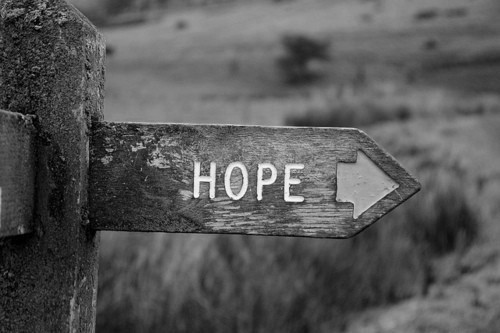"Oh, I meant to tell you," my wife said. "A man came by earlier from an alarm company and I knew you said you were thinking about that for the house, so I told him to come by later tonight." I had been thinking about installing a security system, though most of our prowlers in a rural ex-urb of Atlanta were of the four legged, furry kind.
Later that evening a kindly looking man in his 60s rang our doorbell and we welcomed him in. He told us about his grandkids, we bonded over sports and family. He gave us the pitch and I wasn't sure. Then came the hard sell. I looked at my wife and could read that this wasn't working for us, so I kindly declined the offer. "I understand," he said, "but just think -- you're off away somewhere and your wife is here alone by herself -- do you want to be responsible for something happening?" By this point I'd had it, but he persisted. It's the first (and hopefully last) time I've ever had to ask someone to leave my home, holding the door as they went.
Now bad customer service has been a story of late, but this was somehow different. The tactic employed by this veteran salesman was to prey upon the fear of the unknown. There didn't have to actually be a prowler at our door -- or one within 20 miles of it -- but the idea was enough to create a sense of fear -- one which could be easily assuaged for a modest monthly monitoring fee.
To some, fear is a motivator, to others a sales tactic and to still others, a sign of weakness. Ironically, that sentence is equally true when the word "fear" is replaced with the word "hope." These twin forces -- fear and hope -- are the real players in our two-partied existence and nearly every aspect of our culture uses both to move us to act.
Politicians employ fear of others, of loss, of difference, of change. Fear needn't consider the facts, the simple perception of a crisis is enough to keep folks stirred up for at least a news cycle or two. Both Republicans and Democrats are equally guilty of using these tactics from time to time while the relentless flow of media is pumped from the shoals of our psyches by the grinding gears of fear. Ebola. Gaza. Ukraine. Iraq. Chicago. Whatever comes next.
The media and elected officials haven't cornered the market on fear. Religious leaders leverage this guilt in terms that last much longer than a news cycle, and while Johannes Tetzel isn't around to sell "Get out of Hell Free" indulgences these days, the idea that religious leaders can and should wield eternal authority is as recent as this weeks news. Fear of hell, of not seeing your loved ones, of displeasing God -- fear is a tremendous motivator.
Hope, on the other hand, has a sort of boundless optimism to it -- the kind that can only see an artistic ideal, instead of the wrinkled reality. The "hope-full" are often criticized as relentless idealists, normally by those who pride themselves on a certain brand of pragmatism born out of post-World War social ethics. But those of us who are prone to hoping feel a passionate resolve that is every bit as motivating as fear.
Recently at a conference I asked a question and was challenged for "thinking solely in a binary relationship." The criticism was fair and accurate. On any given day I succumb to the lure of both fear and hope, and I am equally guilty of deploying both in equal measure depending on how badly I want to persuade someone to see things my way. I'm trying to embrace that contradiction within myself, which has lead me to some observations.
Fear says that bringing people who are infected with Ebola to the city I live in threatens my safety.
Hope says that the experimental treatment that is working may save thousands here and abroad.
Fear says that there are children at the border who will drain valuable resources from social service programs that are already overwhelmed.
Hope says that among those children driven from their homes by conflict and tragedy may be the next science genius, media mogul, Secretary of State or economic visionary.
Fear says that war is hell and you must pick sides.
Hope says there is only the human side.
Fear and Hope can both be used cheaply like other ideals to sell whatever product or perspective we may be hawking, but that belies their true purpose. Our fear should teach us something -- and when hope presents itself, we will be faced with the most base impulse -- do we act out of love and care for ourselves or out of love and concern for neighbor?

